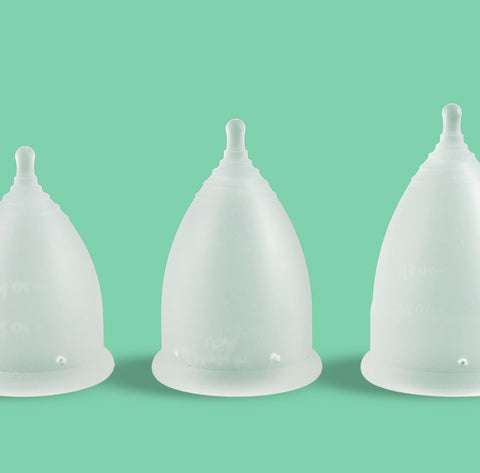There are more types of birth control than ever. Some forms of contraception are long-lasting; Others are single-use. Some birth control is hormonal; Other kinds block sperm from fertilization. Every method of contraception has its own rate of effectiveness, user-friendliness, and affordability.
Disclaimer: Wondering which is best for you? We can’t answer that for you (only your gynecologist can). The following is not medical advice. It was written solely for informational purposes.
Five Quick Facts about Birth Control
Choosing which form of contraception is best for you is a personal decision that you should make with your gynecologist. Be sure to weigh the benefits and potential downsides of each method with your physician before making your final decision.
Here are a few facts to get you started:
- Approximately 49% of pregnancies that occur in the United States are unintended, according to a study published in Perspectives on Sexual and Reproductive Health.
- Out of those unintended pregnancies, 52% were due to a lack of birth control use during the first month of pregnancy. The remaining 48% occurred due to the failure of the method used.
- None of the types of birth control on the market are 100% effective with every use, though some are 99% effective.
- Far from all forms of contraception prevent STI transmission.

What Is Contraception?
Also called contraception, birth control is a method of preventing pregnancy, plain and simple. The many types of birth control can roughly be divided into five categories:
- Those that prevent ovulation
- Those that prevent fertilization
- Barrier methods
- Natural methods
- Surgical methods
For the purpose of this article, we are not classifying the “pull out method” or abstinence as birth control. The former is not a longterm or reliable solution for preventing pregnancy. And the later is not a type of birth control, the same way that not biking, for example, is not a real-life solution for staying safe on a bicycle (compared to, say, wearing a helmet).
Types of Birth Control that Prevent Ovulation
Ovulation is when the ovaries release an egg. It’s after this stage that the egg will either be fertilized by the sperm (which is called the luteal phase) or the woman will begin her period. Ovulation is one of the four steps of a woman’s menstrual cycle, which determines how long a period lasts.
Types of birth control that prevent ovulation include:
- The pill
- Vaginal ring
- Implant
- Patch
Keep in mind that these do not prevent STI (sexually transmitted disease) transmission. If you're asking, can you get pregnant on your period, know that it is less likely but still possible, Ask your gynecologists about family planning.
Preventing Fertilization
By contrast, there are several forms of contraception that allow ovulation to take place but prevent fertilization. One of the most common is the IUD (intra-uterine device).
Birth control that prevents fertilization does exactly that: It prevents the sperm from fertilizing the egg. There are two distinct types of IUD: the copper IUD and the hormonal IUD. The copper version releases copper ions, which cause the fallopian tubes and uterus to excrete a fluid that stops the sperm from fertilizing the egg.
The hormonal IUD thickens the cervix mucus, preventing the sperm from fertilizing the egg. This type of birth control may also stop the egg from leaving the ovaries, thus preventing ovulation as well. These methods do not prevent STI transmission.
Can you use a menstrual cup and IUD? Your questions answered.

Barrier Methods of Contraception
The most readily accessible form of preventing pregnancy, barrier methods either physically stop the sperm from accessing the egg or kill the sperm prior to fertilization. These include:
- Condoms
- Contraceptive sponges
- Cervical caps
- Spermicides
- Diaphragms
One of the advantages of these methods is that they do not involve hormones. Additionally, some of these methods may offer some level of protection against STIs but double-check with your gynecologist when choosing a method to prevent sexually transmitted diseases.
However, a disadvantage for some women is that they must be implemented immediately prior to intercourse. By comparison, an IUD can be used for between 5 and 12 years, depending on the brand.
Natural Types of Birth Control
You may have heard of natural types of birth control. Otherwise known as natural family planning, these methods involve charting a woman’s menstrual cycle to understand when ovulation and the luteal phase are occurring. Sometimes, natural contraception may involve a period tracker or other app.
Examples of natural family planning:
- Cervical mucus examination: This method requires that a woman examine her cervical mucus and learn to identify the difference between the mucus that appears after an egg is released from the ovaries.
- Basal body temperature method (BBT): This approach calls attention to the fact that a woman’s body temperature drops approximately 1-degree Fahrenheit before an egg is released from her ovary. It requires that a woman take her temperature every morning. Note that this is not a significant temperature difference notable room for error.
For some women, these methods' advantages may be that they do not require a visit to the doctor or the expense of paying for contraception. However, they have a significantly larger margin of error. Additionally, intercourse without pregnancy is not possible during certain stages in the menstrual cycle.
Please speak with a physician before using these methods to prevent pregnancy.
Surgical Contraception
Otherwise known as permanent birth control or sterilization, surgical options exist for both men and women. Keep in mind that they do not prevent STIs and must be performed by a doctor.
- Tubal Ligation: A surgical process performed by a physician for women during which the fallopian tubes are cut and tied together. Also known as “getting your tubes tied,” tubal ligation is one of the most common types of birth control according to Obstetrics & Gynecology. This is partially due to its affordability.
- Vasectomy: A surgical and permanent form of sterilization for men performed by a physician. During this procedure, the tubes that carry sperm, also known as the vas deferens, are sealed. It is almost 100% effective.

16 Types of Birth Control in 2021
When it comes to choosing a form of contraception in 2021, there is a lot to think about. Below, we’ve listed 16 types, their approximate effectiveness, and cost. Do not let this list be your only guide when choosing a form of birth control. Speak with a physician to weigh the pros and cons of each method.
Contraception that Prevents Ovulation
Unless otherwise indicated, these figures are taken from the CDC (Center for Disease Control).
The Pill
- Perfect Use Effectiveness: 99.7%
- Typical Use Effectiveness: 91%
- Perfect Use Effectiveness: 99.7%
- Typical Use Effectiveness: 91%
- Perfect Use Effectiveness: 99.95%
- Typical Use Effectiveness: 99.95%
- Perfect Use Effectiveness: 99.7%
- Typical Use Effectiveness: 91%
Birth Control that Prevents Fertilization
Copper IUD
- Perfect Use Effectiveness: 99.4%
- Typical Use Effectiveness: 99.2%
- Perfect Use Effectiveness: 99.4%
- Typical Use Effectiveness: 99.2%
Barrier Method
Male Condom
- Perfect Use Effectiveness: 98%
- Typical Use Effectiveness: 82%
- Perfect Use Effectiveness: 95%
- Typical Use Effectiveness: 79%
- Perfect Use Effectiveness: Between 80-91% depending on the type
- Typical Use Effectiveness: Between 76-88% depending on the type
- Perfect Use Effectiveness: Data not available
- Typical Use Effectiveness: 84% effective for women who have not given birth and 68% effective for women who have, according to the Mayo Clinic.
- Perfect Use Effectiveness: 82%
- Typical Use Effectiveness: 72%
- Perfect Use Effectiveness: 94%
- Typical Use Effectiveness: 88%
Natural Types of Birth Control
Cervical Mucus Examination
- Perfect Use Effectiveness: 96%
- Typical Use Effectiveness: Data not available
- Perfect Use Effectiveness: 99.6%
- Typical Use Effectiveness: Data not available
Surgical Contraception
Tubal Ligation
- Perfect/Typical Use Effectiveness: 99.5%
- Perfect/Typical Use Effectiveness: 99.9%
Choosing Between Types of Birth Control Is Personal
How do you choose the best form of contraception for your needs? First things first, it’s important to weigh the pros and cons of each. How effective is it? how easy is it to find? And will it produce any unwanted side effects?
But, just like choosing a menstrual cup, selecting the right type of birth control is a personal choice that every woman should make with the help of her gynecologist.


